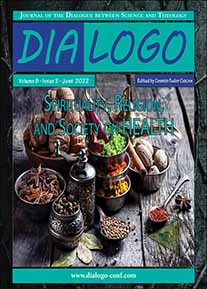Reflections on the philosophical significance of the ritualistic use of music and mental health among traditional healers and their trainees in the Bapedi Society: a healing link to the spiritual realm
Reflections on the philosophical significance of the ritualistic use of music and mental health among traditional healers and their trainees in the Bapedi Society: a healing link to the spiritual realm
Author(s): Morakeng Edward Kenneth LebakaSubject(s): Anthropology, Music, History of Church(es), Theology and Religion, Health and medicine and law, Other Christian Denominations, Sociology of Religion
Published by: Dialogo Publishing House SRL
Keywords: Spiritual realm; Bapedi society; Greater Sekhukhune District Municipality; traditional healers; rituals; health;
Summary/Abstract: In the Bapedi society, music and rituals are the obverse sides of the same coin. They are reciprocal. They complete and complement each other. Music plays a significant role in religious rituals, cultural and social ceremonies. It has specific roles in healing and drums are the basic instrument for most of the Bapedi music tradition. Different kinds of drums are found in the Bapedi culture. Each music genre or traditional music ensemble/group uses a special type of its own. Traditional healers and their trainees use sets of drums of different sizes. The philosophical significance of the ritualistic use of music and mental health within traditional healing context as constitutive for understanding music in healing as a cultural phenomenon is evident and cannot be denied. In the Bapedi society, the significance of ritualistic music is well established and acknowledged by the personal ancestors of both traditional healers and their trainees. The combination of singing, dancing and various musical instruments form part of religious rituals with the sole purpose of appeasing the ancestors for their well-being and rejuvenation. The impact or effect of ritualistic music is multifaceted, and one can distinguish various emotional, mental and physical impacts, amongst others, strengthening the social, spiritual and cultural experience of both the traditional healers and their trainees, as well as the audience. The primary objective of this was to investigate the philosophical significance of the ritualistic use of music and mental health within Bapedi traditional healers’ healing context. To achieve this objective, the study employed contextual and Afrocentric approaches. Informal interviews, video and audio recordings were used to collect data. Secondary sources included published books and Journal articles. The main question the study addressed is: What is the philosophical significance of the ritualistic use of music and mental health within Bapedi traditional healers’ healing context? The results have demonstrated that traditional healers and their trainees apply music in their everyday life to improve their health and well-being. It was concluded that within Bapedi traditional healers’ healing context music serves as a cultural immunogen; and spirituality and religiosity are regarded as the most protective factors for health.
Journal: Dialogo
- Issue Year: 8/2022
- Issue No: 2
- Page Range: 90-102
- Page Count: 13
- Language: English

